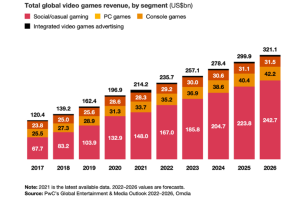
With the rapid advancements in technology, cross-platform gaming has emerged as a significant trend in the gaming industry. This exciting concept enables gamers to play their favorite games on different devices, regardless of the operating system or hardware they possess. Cross-platform gaming offers numerous benefits, such as broader player communities, enhanced gaming experiences, and increased accessibility. However, it also presents various challenges that need to be overcome. In this article, we explore the challenges and opportunities associated with cross-platform gaming.
1. Technical Compatibility
One of the primary challenges in cross-platform gaming is ensuring technical compatibility across multiple devices and platforms. Each operating system and hardware configuration comes with its own architecture, APIs, and limitations. Harmonizing these differences to deliver a seamless experience can be complex. Developers must invest significant time and effort in creating compatibility layers, APIs, and frameworks that allow cross-platform gaming to function efficiently on different devices.
2. Performance Optimization
Cross-platform games need to be optimized to provide consistent performance across various hardware specifications. A game that runs flawlessly on a high-end gaming PC may struggle to perform adequately on a low-powered mobile device. Developers must strike a balance between delivering visually stunning graphics and maintaining smooth gameplay on different platforms. This often involves optimizing the game’s code, graphics, and assets for multiple devices, considering factors like processing power, memory, and screen resolution.
3. Input and Controls
Input and control mechanisms differ significantly across platforms. While a PC gamer might rely on a keyboard and mouse, console gamers prefer gamepads, and mobile gamers rely on touchscreens. Designing a user-friendly and intuitive interface that accommodates and seamlessly translates different input methods poses a challenge. Developers must ensure that the gameplay remains enjoyable and accessible regardless of the platform, taking into account the limitations and capabilities of various input devices.
4. Network Infrastructure
Cross-platform gaming relies heavily on robust network infrastructure and stable connections. The game’s server infrastructure must be capable of handling increased player interactions, as cross-platform functionality often brings together larger gaming communities. Developers need to optimize network performance to minimize latency and packet loss, ensuring smooth gameplay experiences across different platforms. Additionally, implementing secure and scalable server architecture becomes crucial to prevent cheating and maintain fair gameplay.
5. Balancing Gameplay
Each platform may offer different advantages or limitations that affect gameplay balance. For example, console gamers might have better precision with gamepads compared to mobile gamers using touch controls. Developers must devise methods to maintain fair competition and ensure that no platform has a significant advantage. Balancing gameplay while accounting for differences in input methods, performance, and features across platforms is a complex undertaking.
Opportunities
Despite these challenges, cross-platform gaming presents numerous opportunities for developers and gamers alike.
1. Expanded Player Communities
By enabling cross-platform gaming, developers can bring together players from different platforms into a unified gaming community. This creates larger player pools, leading to reduced matchmaking times, more dynamic multiplayer experiences, and increased competition among players. For gamers, this means a broader audience to connect and engage with, enhancing the overall gaming experience.
2. Seamless Gaming Experiences
Cross-platform gaming offers the ability to seamlessly transition between different devices while retaining progress and achievements. Players can start a game on one platform and continue it on another, enabling uninterrupted gameplay experiences. This flexibility appeals to gamers who desire convenience and prefer using multiple devices for their gaming sessions.
3. Accessibility for All
Cross-platform gaming provides greater accessibility, as it eliminates the need for gamers to own specific hardware or platforms to play with their friends. It allows players to join in irrespective of their device preferences, bringing people together and fostering inclusivity. This accessibility aspect widens the gaming market and opens up new opportunities for developers to reach a larger audience.
Conclusion
Cross-platform gaming, while presenting challenges, offers exciting opportunities for both gamers and developers. By addressing concerns related to technical compatibility, performance optimization, input and controls, network infrastructure, and gameplay balance, developers can create cohesive and immersive gaming experiences that span different platforms. The expanding player communities, seamless gameplay experiences, and enhanced accessibility make cross-platform gaming a valuable proposition in the ever-evolving world of gaming.


